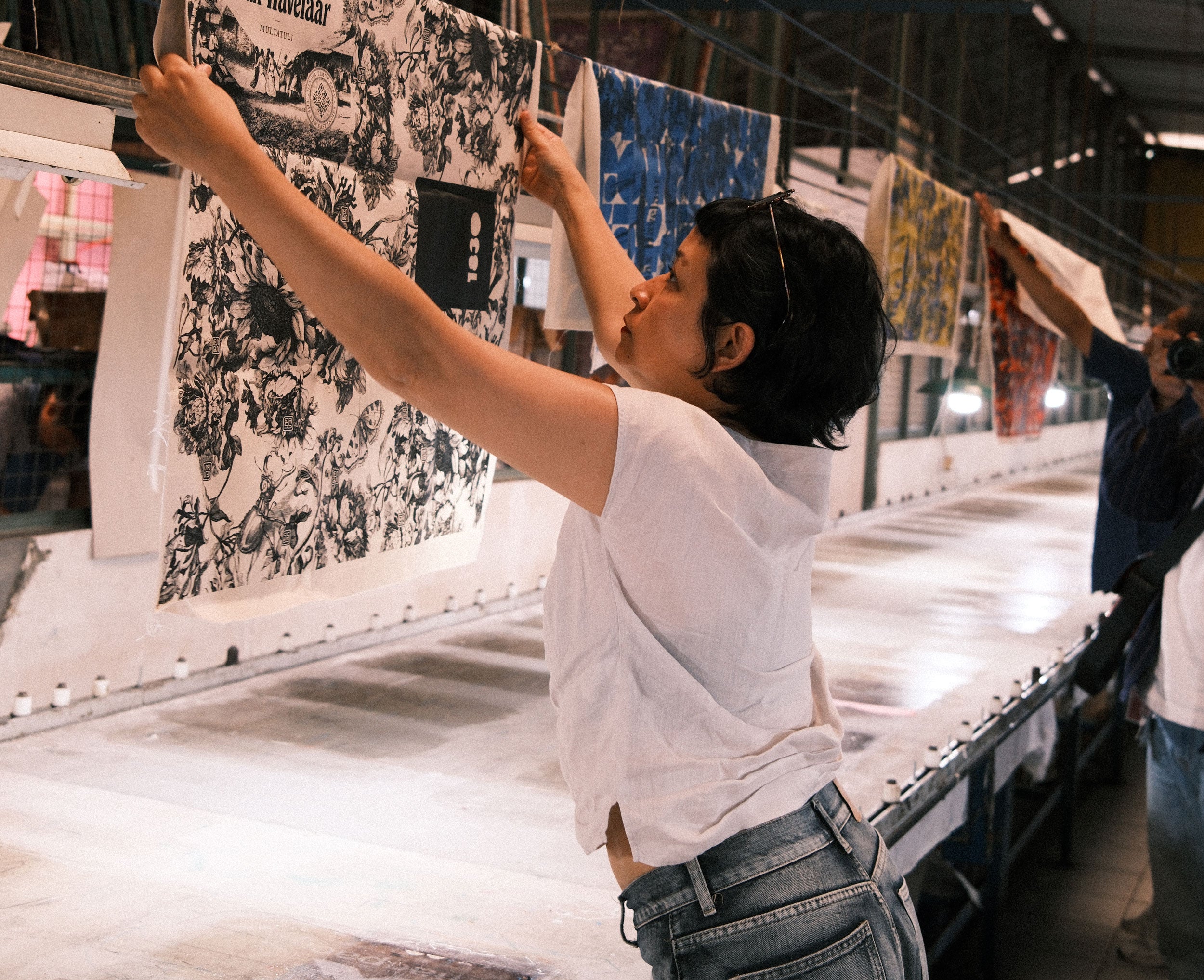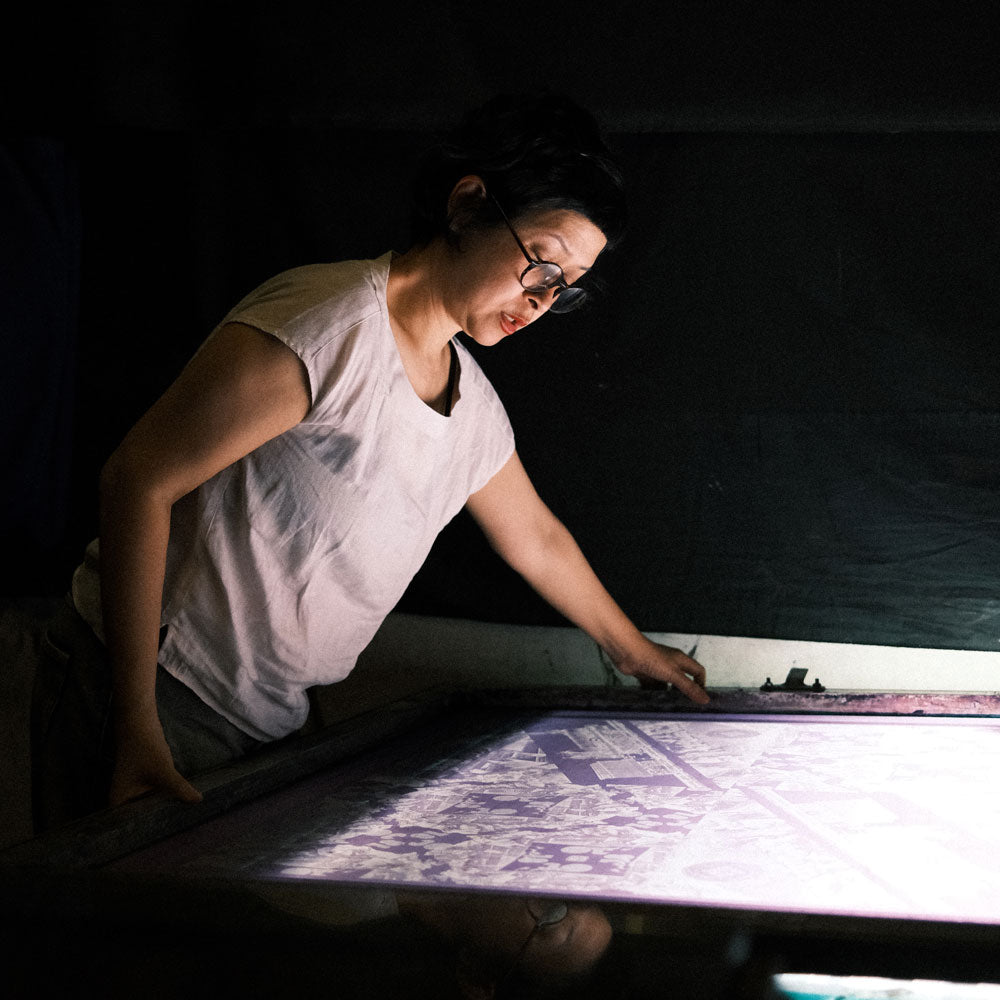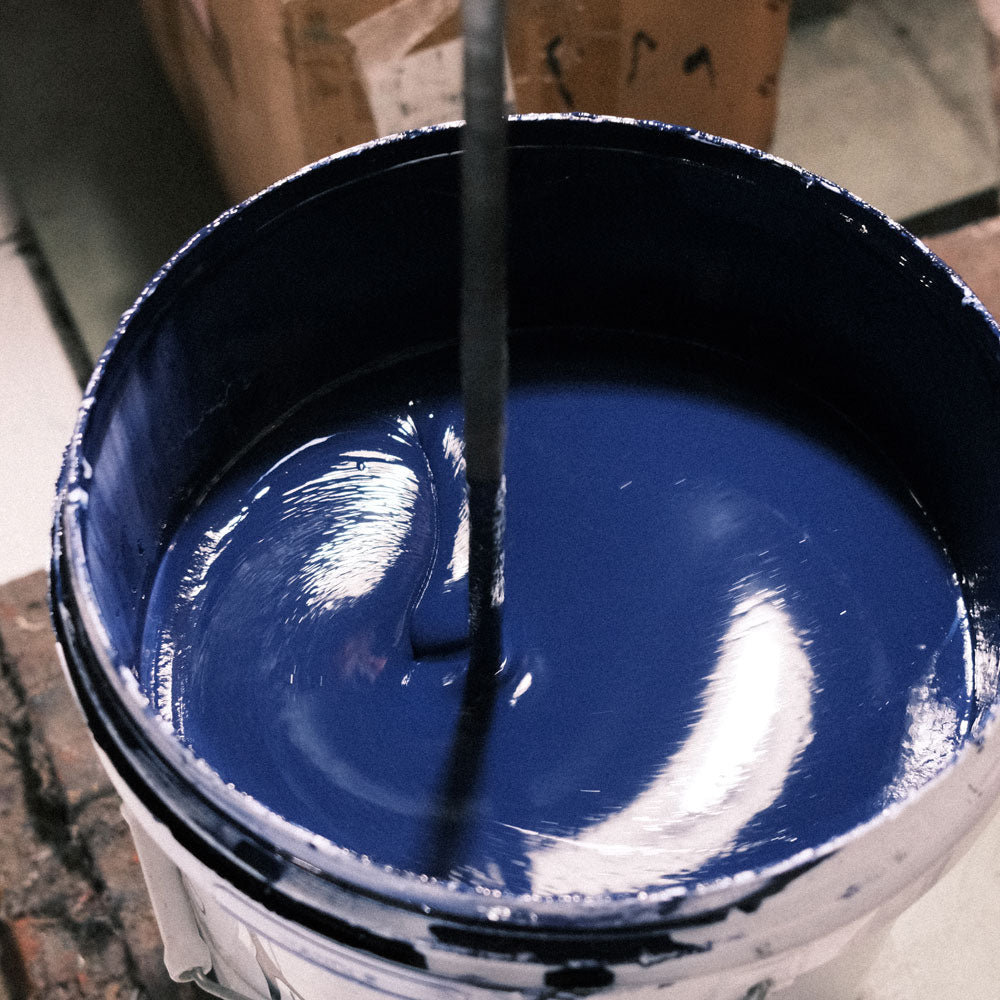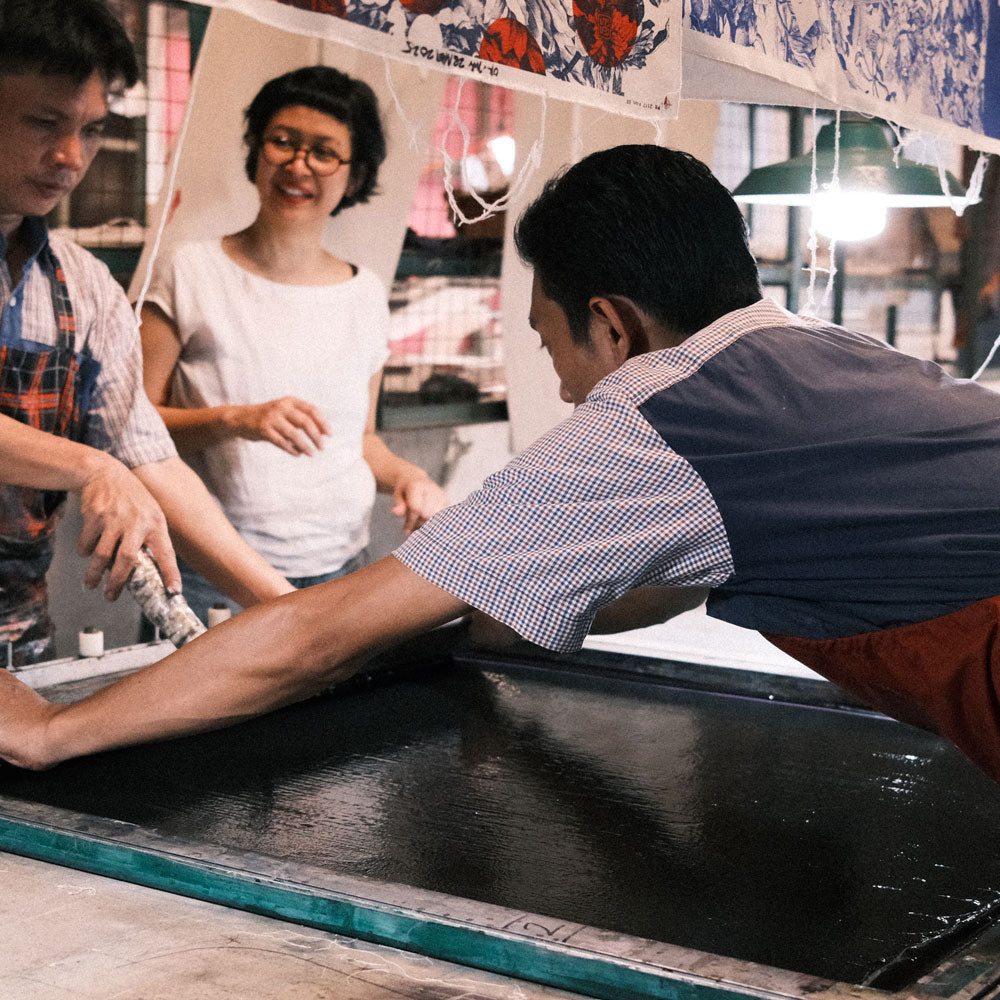
About Tulisan
Wearable Design Objects
Since 2010, Tulisan has been publishing storytelling wearable serigraph objects as a way of regenerating heritage. In Indonesia, textile traditions have long encompassed weaving, batik wax painting, and narrative illustration—forms of “wastra,” or literature in cloth, where stories are spun into threads and embodied through the way fabric is worn. Across the archipelago, women have historically served as guardians of this sacred storytelling practice, weaving knowledge that sustained harmony between humanity and nature amidst rapid development. This legacy reminds us that our ancestors lived in societies where women held central roles and wielded significant influence.
Tulisan’s wearable design objects consciously honour this heritage, transforming textiles into living narratives that connect past and present, while empowering future generations through cultural memory and design. Our wearable storytelling objects are handmade with limited-edition, hand-pulled serigraphy. As a local brand in Jakarta, our challenge is to sustain slow-craft disciplines while resisting the cycle of low-cost, mainstream fashion. We believe it is vital to ground our work in history and reframe marginalised cultural narratives as shared global stories.
The Artist
Melissa Sunjaya is an Indonesian visual artist based in Jakarta who mixes drawing, writing, and sewing. Her work employs illustration as a universal language to articulate complex themes, with a focus on the often-neglected stories of Southeast Asian women. This exploration leads to examining the material culture in wearable artefacts, which she perceives as a medium of art and a catalyst for social change. Her practice incorporates an autoethnographic approach and historical archives, offering insights into creating a more inclusive and representative visual narrative. She established Tulisan in 2010, a grassroots artisanal label of wearable serigraphs infused with storytelling.
Our Values
+ Celebrating Individuality

+ Safeguarding The Planet

+ Empowering Others

Our Commitment
Zero Waste Principles
At Tulisan, regenerative design extends beyond storytelling into our production methods, where we integrate the zero-waste principle at every stage of our process. All cutting patterns are developed with minimalist, functional forms that eliminate fabric waste, while linings are crafted from renewable material derived from post-consumer PET bottles. We partner with Waste For Change, a certified waste management company, to recycle 100% of our waste—paper, cardboard, plastic, and biowaste—while actively tracking our carbon footprint. Our repair and reconstruction services extend product life, resulting in fewer than three returns annually. To support circularity, we created GILT, an online auction platform where collectors can resell or acquire past editions. Due to scarcity, many pre-loved pieces gain higher value over time, affirming our commitment to refuse, reduce, reuse, recycle, and regenerate.
Sustainable Materials
Each textile design is crafted through hand-pulled serigraphy, using eco-friendly pigments on unbleached pure cotton canvas. Treated as collectable art pieces, every item is intricately constructed by hand in small, sustainable batches, honouring ethical practices and requiring up to 120 hours of human effort—from concept to final experience. This process reflects our commitment to artisanal care, respect for materials, and circular design principles. Our sewing production is accredited by the Bluesign® system, an internationally recognised Swiss certification that ensures sustainable and safe practices throughout the supply chain. This includes responsible resource management, maintaining clean working environments, effective wastewater treatment, optimal air ventilation, adhering to strict artisan safety standards, and ensuring consumer product safety. By integrating sustainable materials with certified production, we transform fashion into a conscious act of preservation and respect.
Fair and Ethical Methodology
Hand-pulled printing is a labour-intensive process requiring the skill of two to three artisans, while using significantly less water than automated machines. Heat curing and manual pressure can cause shrinkage or image variation, meaning each impression is unique—shaped by the reactions of humidity and pigment. At Tulisan, we embrace these natural imperfections as markers of authenticity, shifting perceptions of craftsmanship from uniformity to individuality. We strictly avoid materials and methods linked to animal cruelty, toxic chemicals, or environmental harm, ensuring that every design decision aligns with fair and ecological values. Our use of eco-friendly pigments yields organic impressions that convey emotional depth and authenticity. This approach sustains artisanal traditions, creates meaningful job opportunities, and empowers makers whose skills infuse each piece with character and cultural resonance.
Circular Economy
At Tulisan, we view wearable art and memory work as pathways to expanding a circular economy through a feminist lens—bridging art, sustainability, and community empowerment. Our practice aligns with solidarity-based economies, where wealth is redistributed to those who create value rather than concentrated in corporations. By sharing infrastructure, knowledge, and ethical production systems, we aim to build a self-sustaining ecosystem where artisans receive fair wages, access to resources, and long-term security.
Transparent Pricing
We apply the following pricing structure as a fair and sustainable business model:
5% - Research with Academic Framework
15% - Design Development
20% - Responsible Production and Ecological Materials
20% - Operations: Logistics, Salaries, & Waste Management
14% - Rent
6% - Infrastructure: Digital Server, Tooling, Utilities, Etc.
6% - Sales and Marketing
3% - Company’s Profit
11% - VAT
